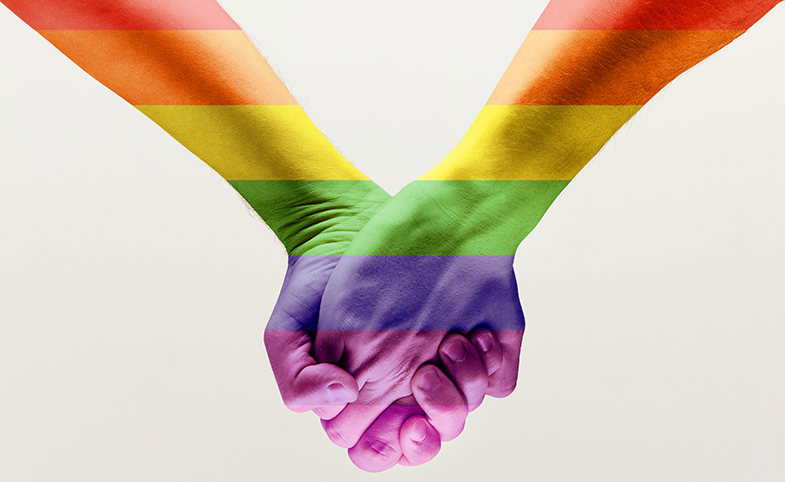13 July 2022

Hello everyone, welcome to our next wellbeing blog.
This week we are focusing on how we can raise awareness as part of Mental Health Awareness Week.
Today’s blog is about Psychosis.
At Prospect House, we have used the ‘5 ways to wellbeing’ as a framework for our approach to Mental health and wellbeing. This comprises of
5 different elements:
Connect - Making time for relationships with friends, family and colleagues and elsewhere within your community.
Be active - Exercising, physical activity and enjoying good health.
Take notice - Being aware of the world around you and reflecting on your experiences.
Keep learning - Trying new things and challenging yourself.
Give - Doing something nice for others, volunteering, making yourself and others happy
About LGBTIQ+ mental health
Some people may identify as LGBTIQ+. This means they may be lesbian, gay, bisexual, trans, intersex, non-binary, queer or questioning. Or they may define our gender and sexuality in other ways. Stonewall's glossary lists many more terms.
Anyone can experience a mental health problem. But those who identify as LGBTIQ+ are more likely to develop problems like:
- low self-esteem
- depression
- anxiety, including social anxiety
- eating problems
- misusing drugs and alcohol
- self-harm
- suicidal feelings
- other mental health problems.
Being LGBTIQ+ does not cause these problems. The reasons why those people with LGBTIQ+ identities are more likely to get them are very complicated. But it is most likely to do with facing things like:
- homophobia, biphobia and transphobia
- stigma and discrimination
- difficult experiences of coming out
- social isolation, exclusion and rejection.
It's important to remember that embracing LGBTIQ+ identity can also have a positive impact on wellbeing. It might mean:
- increased confidence
- improved relationships with your friends and family
- a sense of community and belonging
- the freedom of self-expression and self-acceptance
- increased resilience.
We know that LGBTIQ+ people do not exist as one group. Everyone is different. Our identities are a complicated mix of factors, including:
- age
- ethnicity
- religion
- cultural background
- socio-economic background
- gender identity and gender expression
- sexuality
- physical ability
- many other characteristics.
People may face many challenges in your life that other LGBTIQ+ people don't face, or even understand. This might include many other kinds of discrimination, social exclusion or social disadvantage.
What help and support is available?
It's important to remember that everyone deserves support and respect, whatever your identity or background. And you have legal rights to access healthcare without discrimination.
The Mind LGBTIQ+ mental health support covers lots of options. This includes tips on self-care, seeking help and specialist LGBTIQ+ services.
Some shocking statistics include:
- Half of LGBT people (52 per cent) said they’ve experienced depression in the last year.
- One in eight LGBT people aged 18-24 (13 per cent) said they’ve attempted to take their own life in the last year.
- Almost half of trans people (46 per cent) have thought about taking their own life in the last year, 31 per cent of LGB people who aren’t trans said the same.
- Forty-one per cent of non-binary people said they harmed themselves in the last year compared to 20 per cent of LGBT women and 12 per cent of GBT men.
- One in six LGBT people (16 per cent) said they drank alcohol almost every day over the last year.
- One in eight LGBT people aged 18-24 (13 per cent) took drugs at least once a month.
- One in eight LGBT people (13 per cent) have experienced some form of unequal treatment from healthcare staff because they’re LGBT.
- Almost one in four LGBT people (23 per cent) have witnessed discriminatory or negative remarks against LGBT people by healthcare staff. In the last year alone, six per cent of LGBT people – including 20 per cent of trans people – have witnessed these remarks.
- One in twenty LGBT people (five per cent) have been pressured to access services to question or change their sexual orientation when accessing healthcare services.
- One in five LGBT people (19 per cent) aren’t out to any healthcare professional about their sexual orientation when seeking general medical care. This number rises to 40 per cent of bi men and 29 per cent of bi women.
- One in seven LGBT people (14 per cent) have avoided treatment for fear of discrimination because they're LGBT.
Posted by Robin Anthony
Category: Health & Well-being
.jpg)
